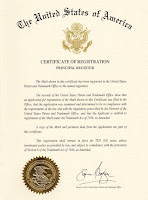To protect authors and other creators of older works from having to live with a bad deal they entered into when they had little negotiating skill or leverage, the Copyright Act allows them (or their families) to recapture copyrights by sending notices of termination to their publisher partners.
Post 1977 Contracts
Section 203 of the “new” Copyright Act applies to grants of copyrights signed on or after January 1, 1978 by the author -- not grants signed by an author's heirs. One of the idiosyncrasies of the termination right, is that it does not apply to foreign grants. However, under UK law, heirs can recapture rights twenty-five years after the death of an author. Known as British Reversionary Rights, these rights are analogous to our recapture and termination rights.
"Works made for hire" are immune from termination. Of special concern to heirs is an unsavory practice known as revoke and re-grant. If you are an heir, be very careful of what you are asked to sign by agents, coauthors, publishers, producers and other copyright licensees and partners. If it is a revoke and immediate regrant of the rights agreement, you may be signing away valuable rights for less than market rate.
Statutory v Contractual Termination Rights
The right of termination should not be confused with the contractual right many authors have to recapture book rights when their book goes out-of-print. When a book goes out-of-print, most book contracts allow the author to request a reversion of rights. Regrettably, what constitutes "out of print" is not always clear, and responding to written requests for a reversion of rights is not a top priority with publishers. Unlike out-of-print clauses, which requires the cooperation of the publisher, the statutory termination right automatically vests those rights in the author.
Death & Termination
The important message is that when an author dies, their spouse, children or grandchildren, even parents or siblings, may be entitled to exercise the recapture rights discussed in this article.
The Copyright Act gives families of deceased authors and composers an opportunity to recapture rights to pre-1978 works as well.
For example, when the author of an older work dies during the initial 28-year term of copyright, that author’s family has the right to reclaim the renewal copyright, which is a further term of 67 years of copyright protection. This subset of the Copyright Act also provides for termination at any time during the five year period beginning at the end of 56 and 75 years from the date the copyright was originally secured. These added opportunities to get back ownership of copyrights exists even if the author assigned his or her renewal term (or devised it by will) to someone other than his family. What is extraordinary about these rights, is that copyright law also trumps a writer or composer's will.
Example. Miles Davis, the jazz icon, died in 1991, before the end of the 28th year of copyright of his revolutionary 1970-album Bitches Brew. Because he died before the 28th year of copyright, his renewal term rights in the song Bitches Brew vested automatically in his heirs -- cutting off a sister and brother mentioned in his will, and severing his ties to his music publisher. Today, his sons (two of whom were not included in their father's will) and his daughter, jointly control the remaining 67-years of copyright in Bitches Brew and other songs. Here, Section 203 trumped both Miles Davis' will and his songwriter agreements.
2. Le Freak
3 My Life
NOTICE: This article discusses general legal issues of interest and is not designed to give any specific legal advice pertaining to any specific circumstances. It is important that professional legal advice be obtained before acting upon any of the information contained in this article. This article represents copyrighted material and may only be reproduced in whole for personal or classroom use. It may not be edited, altered, or otherwise modified, except with the express permission of the author.
LLOYD J. JASSIN is a New York-based publishing and entertainment attorney with a special interest in copyright and trademark matters. He is co-author of The Copyright Permission and Libel Handbook: A Step-by-Step Guide for Writers, Editors and Publishers (John Wiley & Sons, Inc.). A former publishing executive, Mr. Jassin has written extensively on negotiating contracts in the publishing and entertainment industries, and lectures frequently on contract and copyright issues affecting creators. He may reached at Jassin@copylaw.com or at (212) 354-4442. His offices are located at 1560 Broadway, Suite 400, New York, NY 10036. Visit www.copylaw.org.
(c) 2010. Lloyd J. Jassin. All Rights Reserved.





